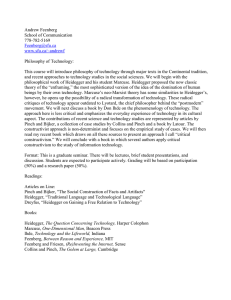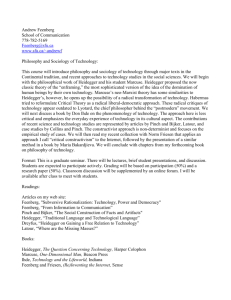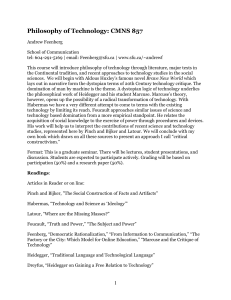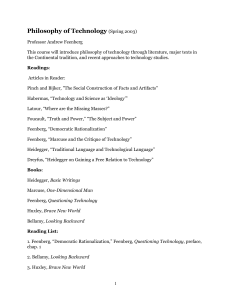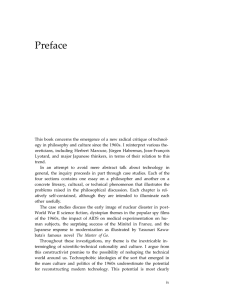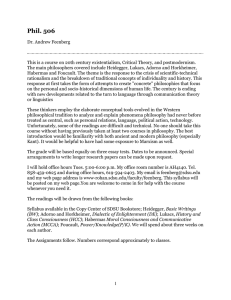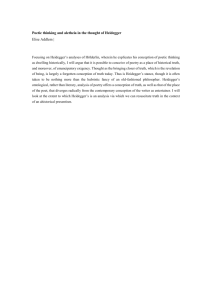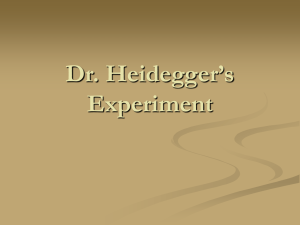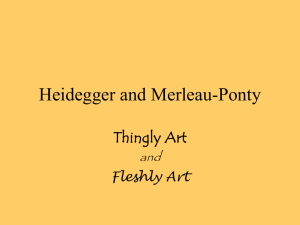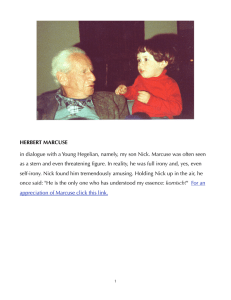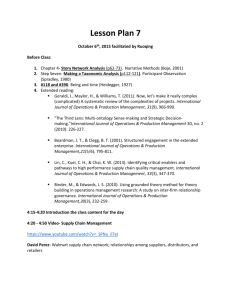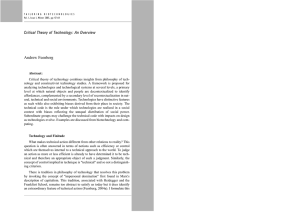Philosophy of Technology: CMNS 857
advertisement
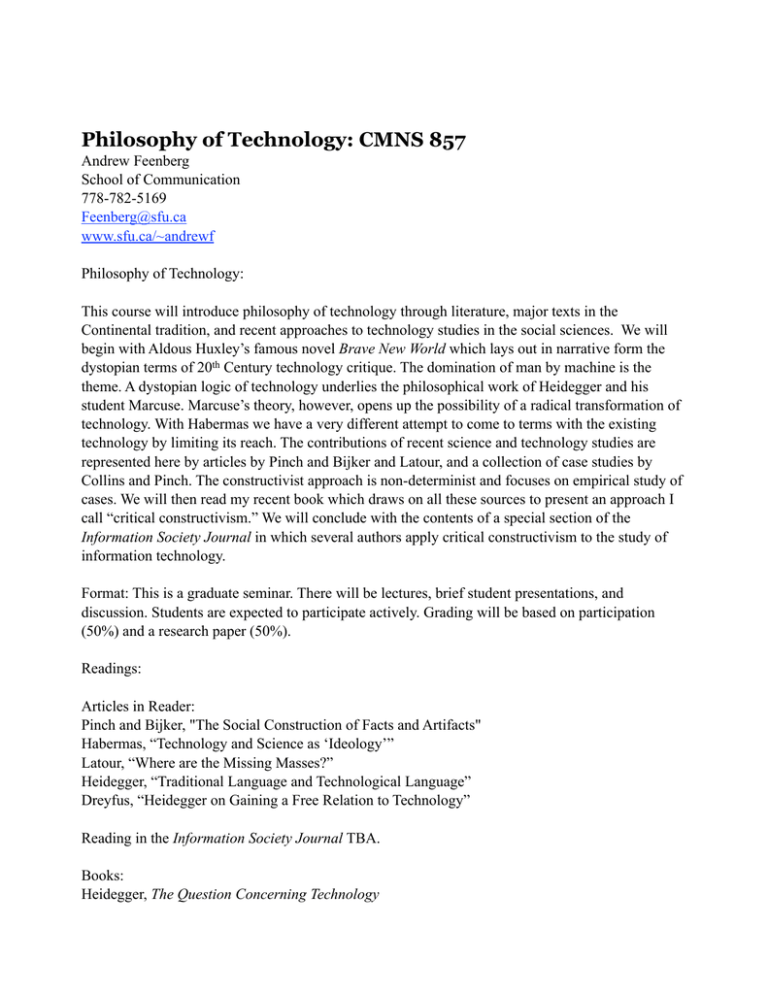
Philosophy of Technology: CMNS 857 Andrew Feenberg School of Communication 778-782-5169 Feenberg@sfu.ca www.sfu.ca/~andrewf Philosophy of Technology: This course will introduce philosophy of technology through literature, major texts in the Continental tradition, and recent approaches to technology studies in the social sciences. We will begin with Aldous Huxley’s famous novel Brave New World which lays out in narrative form the dystopian terms of 20th Century technology critique. The domination of man by machine is the theme. A dystopian logic of technology underlies the philosophical work of Heidegger and his student Marcuse. Marcuse’s theory, however, opens up the possibility of a radical transformation of technology. With Habermas we have a very different attempt to come to terms with the existing technology by limiting its reach. The contributions of recent science and technology studies are represented here by articles by Pinch and Bijker and Latour, and a collection of case studies by Collins and Pinch. The constructivist approach is non-determinist and focuses on empirical study of cases. We will then read my recent book which draws on all these sources to present an approach I call “critical constructivism.” We will conclude with the contents of a special section of the Information Society Journal in which several authors apply critical constructivism to the study of information technology. Format: This is a graduate seminar. There will be lectures, brief student presentations, and discussion. Students are expected to participate actively. Grading will be based on participation (50%) and a research paper (50%). Readings: Articles in Reader: Pinch and Bijker, "The Social Construction of Facts and Artifacts" Habermas, “Technology and Science as ‘Ideology’” Latour, “Where are the Missing Masses?” Heidegger, “Traditional Language and Technological Language” Dreyfus, “Heidegger on Gaining a Free Relation to Technology” Reading in the Information Society Journal TBA. Books: Heidegger, The Question Concerning Technology Marcuse, One-Dimensional Man Feenberg, Between Reason and Experience Huxley, Brave New World Collins and Pinch, The Golem at Large Reading List by week: 1. Feenberg, introduction to the course 2. Huxley, Brave New World 3. Heidegger, “Traditional Language and Technological Language,” Dreyfus, “Heidegger on Gaining a Free Relation to Technology,” Heidegger, The Question Concerning Technology, “The Question Concerning Technology” 4. Marcuse, One-Dimensional Man, Introduction, Preface, pp. 1-120 5. Marcuse, One-Dimensional Man, pp. 123-257 6. Habermas, “Technology and Science as ‘Ideology,’”. 8. Pinch and Bijker, "The Social Construction of Facts and Artifacts," Latour, “Where are the Missing Masses?” 9. Collins and Pinch, The Golem at Large 10. Feenberg, Between Reason and Experience, preface, pp. 1-124 11.Feenberg, Between Reason and Experience, pp. 127-226 12. Information Society Journal, pp. 77-118
